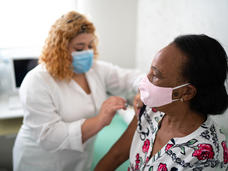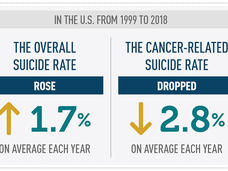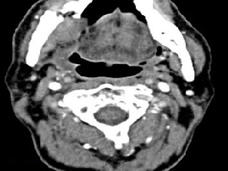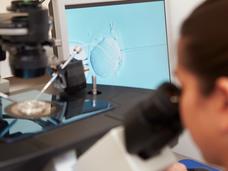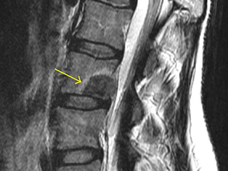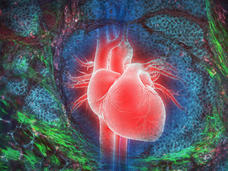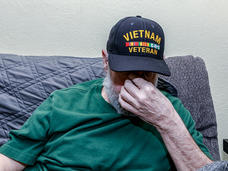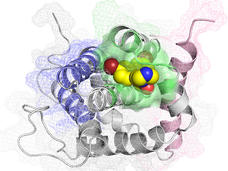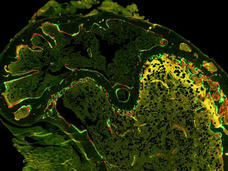Survivorship & Supportive Care - Cancer Currents Blog
News on research that affect cancer patients and survivors. Topics include managing treatment side effects, fertility preservation, and cancer’s long-term effects.
-
New Task Force Focuses on Quality of Life for AYAs with Cancer
Cancer can greatly disrupt life for adolescents and young adults, who are already going through major life changes. Gathering data on how cancer and its treatment affect this age group will improve their quality of life during and beyond treatment.
-
COVID-19 Vaccines May Be Less Effective in Some People with Cancer
People with blood cancers seem to be less protected by COVID-19 vaccines than those with other cancers and people without cancer, three new studies suggest. Experts believe this limited effectiveness is likely due to patients’ weakened immune systems.
-
Study Details Long-Term Side Effects of Immune Checkpoint Inhibitors
While doctors are familiar with the short-term side effects of immune checkpoint inhibitors, less is known about potential long-term side effects. A new study details the chronic side effects of these drugs in people who received them as part of treatment for melanoma.
-
Can Acupuncture Help Cancer Survivors with Chronic Pain?
In a large clinical trial, cancer survivors treated with acupuncture had modest improvements in chronic pain compared with those who received standard pain treatments. The study couldn’t rule out a placebo effect for the improvement with acupuncture.
-
Rate of Suicides Related to Cancer Is Declining
Cancer-related suicides dipped each year between 1999 and 2018 in the United States, a recent study has found. Yet, people who have had cancer remain at high risk for suicide and improvements in supportive care are needed, experts say.
-
Study Explores Jaw Problem Linked to Zoledronic Acid, Finds Risk Factors
A recent study quantified the risk of osteonecrosis of the jaw for patients who take zoledronic acid to manage complications from cancer that has spread to the bone. The study also examined risk factors for osteonecrosis of the jaw in these patients.
-
Fertility Preservation Safe for Young Women with Breast Cancer
Fertility preservation for young women with breast cancer doesn’t increase their risk of dying in the ensuing decades, a new study affirmed. Experts said the findings support routinely offering fertility preservation to patients who want it.
-
Targeted Radiation Reduces Pain from Cancer Metastases in the Spine
For some patients with painful spinal metastases from advanced cancer, a type of precise, high-dose radiation therapy—called stereotactic body radiation therapy (SBRT)—may be a highly effective way to relieve that pain, clinical trial results show.
-
Are Cancer Patients Getting the Opioids They Need to Control Pain?
Efforts to contain the opioid epidemic may be preventing people with cancer from receiving appropriate prescriptions for opioids to manage their cancer pain, according to a new study of oncologists’ opioid prescribing patterns.
-
Having a Heart Attack May Make Breast Cancer Grow Faster
A heart-related event, like a heart attack, may make breast cancer grow faster, a new study suggests. In mice, heart attacks accelerated breast tumor growth and human studies linked cardiac events with breast cancer recurrence, researchers reported.
-
Study Offers Insights on Health Problems among AYA Cancer Survivors
A study found that the risk of developing any of 26 chronic health problems was about 50% higher among cancer survivors who were diagnosed as adolescents and young adults, compared with their peers who did not have cancer.
-
Study Links Mental Health Treatment to Improved Cancer Survival
In a study of more than 50,000 veterans with lung cancer, those with mental illness who received mental health treatment—including for substance use—lived substantially longer than those who didn’t participate in such programs.
-
Olanzapine Reduces Nausea and Vomiting Caused by Advanced Cancer
Many advanced cancer patients suffer from chronic nausea and vomiting and there aren’t many good treatments available. But a small study suggests that the drug olanzapine (Zyprexa) may fill that gap.
-
For Women with Breast Cancer, Regular Exercise May Improve Survival
Women with high-risk breast cancer who engaged in regular exercise before their cancer diagnosis and after treatment were less likely to have their cancer return or to die compared with women who were inactive, a recent study found.
-
Helping Cancer Survivors Cope with Cancer-Related Anxiety and Distress
Researchers are exploring ways to support the psychological and emotional needs of cancer survivors and how to tailor existing approaches to meet the needs of specific individuals or groups.
-
Women Experience More Side Effects from Pelvic Radiation than Realized
Women with cervical or uterine cancer who received radiation to the pelvic region reported side effects much more often using an online reporting system called PRO-CTCAE than they did during conversations with their clinicians, a new study shows.
-
Experimental Drug Prevents Doxorubicin from Harming the Heart
An experimental drug may help prevent the chemotherapy drug doxorubicin from harming the heart and does so without interfering with doxorubicin’s ability to kill cancer cells, according to a study in mice.
-
Mouse Study Points to Strategy for Preserving Bone During Chemotherapy
Bone loss associated with chemotherapy appears to be induced by cells that stop dividing but do not die, a recent study in mice suggests. The researchers tested drugs that could block signals from these senescent cells and reverse bone loss in mice.
-
Oncofertility: Creating a Bridge Between Cancer Care and Reproductive Health
Dr. Teresa Woodruff discusses the field that connects oncology with reproductive health, and the Oncofertility Consortium’s efforts to support clinicians, cancer patients, and families in understanding how cancer and its treatment affect fertility.
-
Prescribing Exercise as Cancer Treatment: A Conversation with Dr. Kathryn Schmitz
Updated guidelines on exercise for those living with cancer and cancer survivors were recently released. In this conversation, Dr. Kathryn Schmitz discusses what these new guidelines mean for doctors, patients, and survivors.

